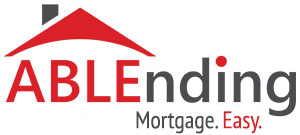Hot Mortgage Terms You Need To Know
Are you considering purchasing a new home? If you are, you should know that this may very well be a very good time to buy a house. The housing market is sluggish, which means that prices tend to be lower and so do interest rates. Also, there are more houses from which to choose. This surplus of houses on the market is good for the buyer; basic laws of supply and demand dictate that the more there is of something (in this case houses), the less it tends to cost.
If you are going to purchase soon, however, it is important that you understand the terminology used regularly in the real estate world. Common mortgage terms include interest rates, length or term of loan, closing costs, variable rate loans, origination fees, document taxes, home equity, acceleration, amortization, conventional financing, down payment, FHA loans, fixed rate loans, points, and private mortgage insurance (PMI).
The interest rate is the amount of money the lender is charging you in order to borrow the loan. This is expressed in terms of percent. Of course, the lower the interest rate, the less the cost of the loan.
The term of the loan is also referred to as the length of the loan. This is how long you will be expected to make payments on the mortgage. In years past, most mortgages were twenty years. Now, thirty years is most common.
Closing costs are any fees associated with the actual transaction of buying and selling a home. These include realtor’s fees, title insurance fees, document stamp taxes, the cost of necessary repairs to the home (if the repair company has agreed to be paid at closing), points, and other miscellaneous costs.
Variable rate loans are the “opposite” of fixed rate loans. With a variable rate loan, the percent you pay in interest can go up and down according to the prime interest rate. With fixed rate loans, the interest percent remains the same throughout the life of the loan.
Points, also called loan discount points, are fees that are charged to the buyer from the lender. These fees are prepaid interest and can add quite a bit of cost to your closing. One point is equal to one percent of the loan amount. If you are borrowing $100,000 and are assessed one point by the lender, you will have to pay $1000 of prepaid interest when all the paperwork is done at your closing.
Private mortgage insurance (PMI) is a type of insurance that allows the buyer to put down a smaller down payment on the home. Many lenders will require that you purchase PMI if you are putting less than twenty percent down.
A down payment is the amount of money you are paying out of your own pocket toward the purchase of your new home. The selling price of the home (plus all fees and other costs) minus the amount of the mortgage is equal to your down payment. Most lenders require you to have a down payment of twenty percent or carry PMI.

Leave A Comment